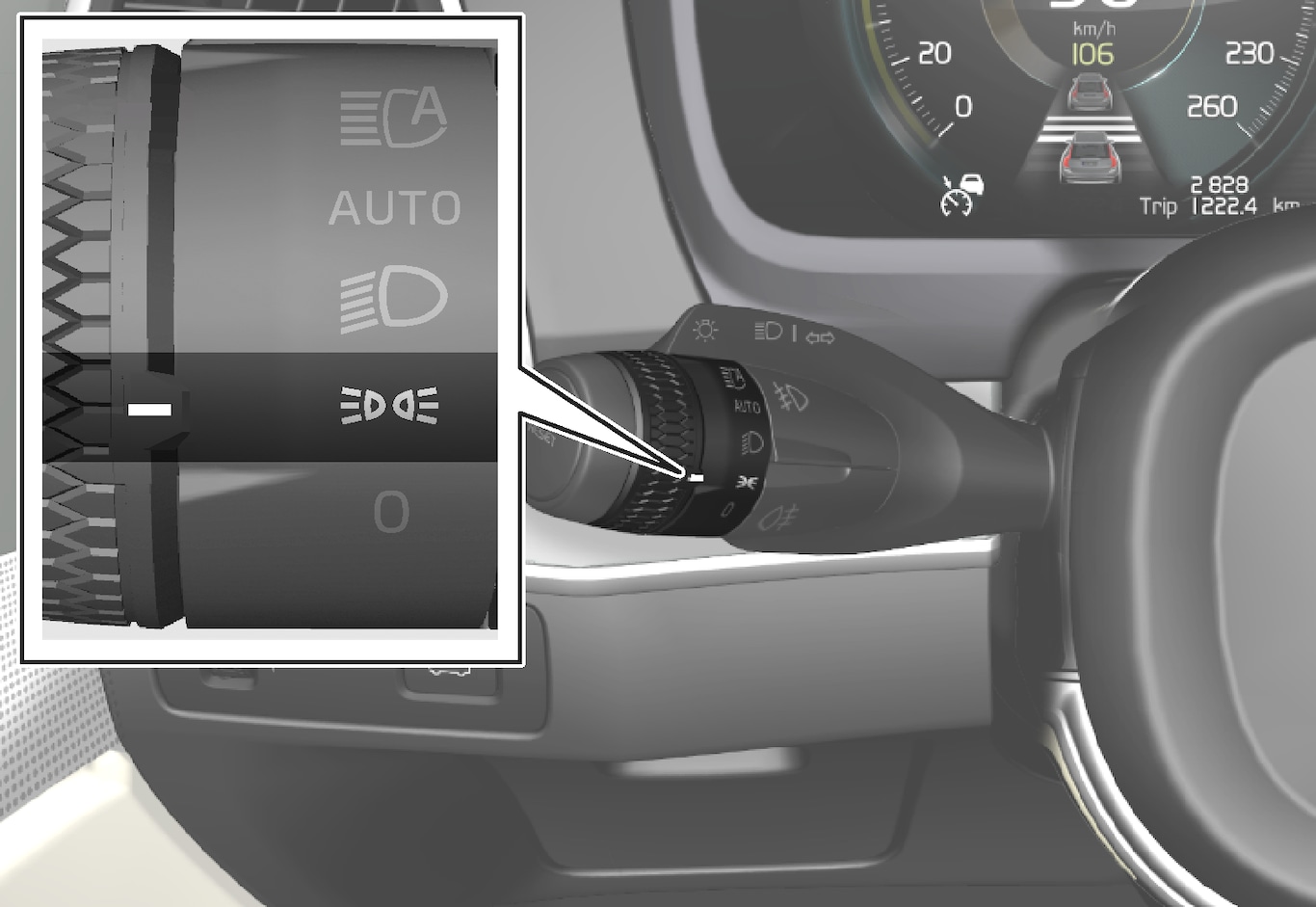Position lamps

Turn the rotating ring to the  position - the position lamps are switched on (number plate lighting is switched on at the same time).
position - the position lamps are switched on (number plate lighting is switched on at the same time).
If the car's electrical system is in ignition position II then the daytime running lights are switched on instead of the front position lamps. When the rotating ring is in this position, the position lamps are switched on regardless of the ignition position of the car's electrical system.
If the car is stationary but running, the rotating ring can be moved to the position lamp  position from another position to switch on only the position lamps instead of other lighting.
position from another position to switch on only the position lamps instead of other lighting.
When driving for more than 30 seconds at max. 10 km/h (approx. 6 mph), or if the speed exceeds 10 km/h (approx. 6 mph), the daytime running lights are switched on. The driver should turn to a position other than  .
.
If the tailgate is opened when it is dark outside, the rear position lamps come on (if not already switched on) to warn road users approaching from behind. This takes place irrespective of the position of the rotating ring or the ignition position of the car's electrical system.
Adaptive rear light function
The rear position lamps have an adaptive function. The brightness of the rear position lamps is adapted depending on the light conditions in the surroundings. When it is light outside, the rear position lamps are illuminate more brightly to make them more visible to other vehicles. When it is dark outside, the rear position lamps illuminate less brightly to avoid dazzling other vehicles.
Number plate lighting and trailer lighting are not affected by the adaptive function.